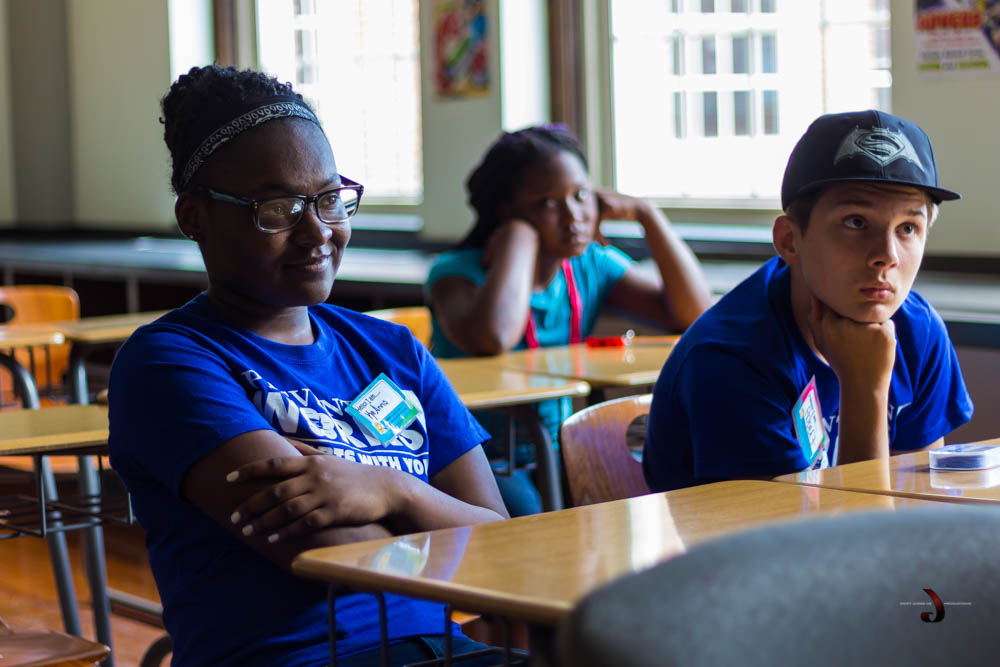JFS Peer Leaders Promote Positive Change in Delaware Schools
Written by: Meredith Stuart, Marketing & Development Specialist
“Youth learn best from their peers.” This truth drives Alice Stevens’ work as a credentialed Prevention Specialist at Jewish Family Services of Delaware. It is the reason why she wanted to start a Peer Leader program at JFS.
Inspired by Jewish values of justice, community, and caring for others, JFS has provided counseling and support services in Delaware and the Brandywine Valley for nearly 120 years.
“If you go back to Maimonides’ levels of charity, the highest form of charity is acting to strengthen others so that they become self-sufficient,” says CEO ,Dory Zatuchni. “Peer Leaders takes it one step further – as they will be passing it on and strengthening their peers.”
 JFS’ inaugural class of Peer Leaders includes 10 young men and women, ages 13 to 18, attending different schools throughout New Castle County. After training, planning, and team building over the summer, they will be implementing unique prevention programming in their schools during the year. “Instead of adults going out and telling them that things need to change,” Alice explains, “we want the Peer Leaders to be in charge of making those changes.”
JFS’ inaugural class of Peer Leaders includes 10 young men and women, ages 13 to 18, attending different schools throughout New Castle County. After training, planning, and team building over the summer, they will be implementing unique prevention programming in their schools during the year. “Instead of adults going out and telling them that things need to change,” Alice explains, “we want the Peer Leaders to be in charge of making those changes.”
Ke’Anna Williams, who became a Peer Leader in June, puts it this way: “When you become a Peer Leader, you go out in the community and in your school to teach people how to do the right things, how to make the right choices, and how to help other people.”
“JFS takes pride in training youth,” says Director of Youth and Family Support Sophie Namugenyi. Peer Leaders, she explains, is an extension of prevention and workforce development programming that focuses on building skills and helping youth become assets to their communities and future employers.
Ke’Anna is a 10th grader at St. George’s Technical High School in Middletown. In many ways she is a typical teenager. She talks a lot about her friends – the influence that they have on her, and the influence that she has on them. She was nervous at the beginning of the interview, but when she started speaking about becoming a Peer Leader, her demeanor changed.
“Where we live, there’s not a lot of positive things going on,” she said, leaning forward, her voice strong and passionate. “I wanted to be a part of the program because I want to be a person to change it. I want to show there is positivity in the world and help other people build up positivity.”
Ke’Anna first got involved with JFS in 2014 through the agency’s Prevention Program. Through the class, she helped write, star in, and shoot a PSA encouraging her peers to “choose their own image” instead of letting others define them.
“I was really shy,” Ke’Anna remembers. “I didn’t want to be on camera, I didn’t want to do it.” But after getting to know the group, and being encouraged by her peers and instructors, she became more comfortable in the spotlight.
“Ms. Alice brought me out of my shell,” she says. “She made me do a lot of things that I wasn’t comfortable doing, but now I can do them. Like going out in public and talking to people.”
“Many times as parents or community members, we allow the students to stay in their comfort zones,” Alice says. “One of the ways we are succeeding is in pushing them outside their comfort zones, because that’s the way that they are going to find their voices and grow.”
Peer Leaders start with a three day training in how to handle difficult situations. “The first day,” explains Alice, “is about getting to know themselves because in order to be a Peer Leader, you need to know your strengths and weaknesses.” Day two focuses on conflict resolution and mediation, and day three teaches the students how to lead sessions with their peers.
Ke’Anna learned a lot from acting out different scenarios ranging from helping cheer up a peer with positive reinforcement to supporting a friend who is being abused. “We got taught how to take care of that person – not to just go tell the teacher by yourself,” Ke’Anna said. “You can’t take the power away from that person, you have to let them speak out for themselves.”
Now, back at school, the Peer Leaders will each be implementing the program in their own way, in line with their own interests. One Peer Leader wants to offer tutoring to help with homework, another wants to tackle bullying.
As for Ke’Anna, she plans to create a group where students are comfortable sharing their feelings and they can work together with their peers resolve their problems. “It’s an opportunity to get everything out,” she said, “because holding things in doesn’t have a good outcome.”

